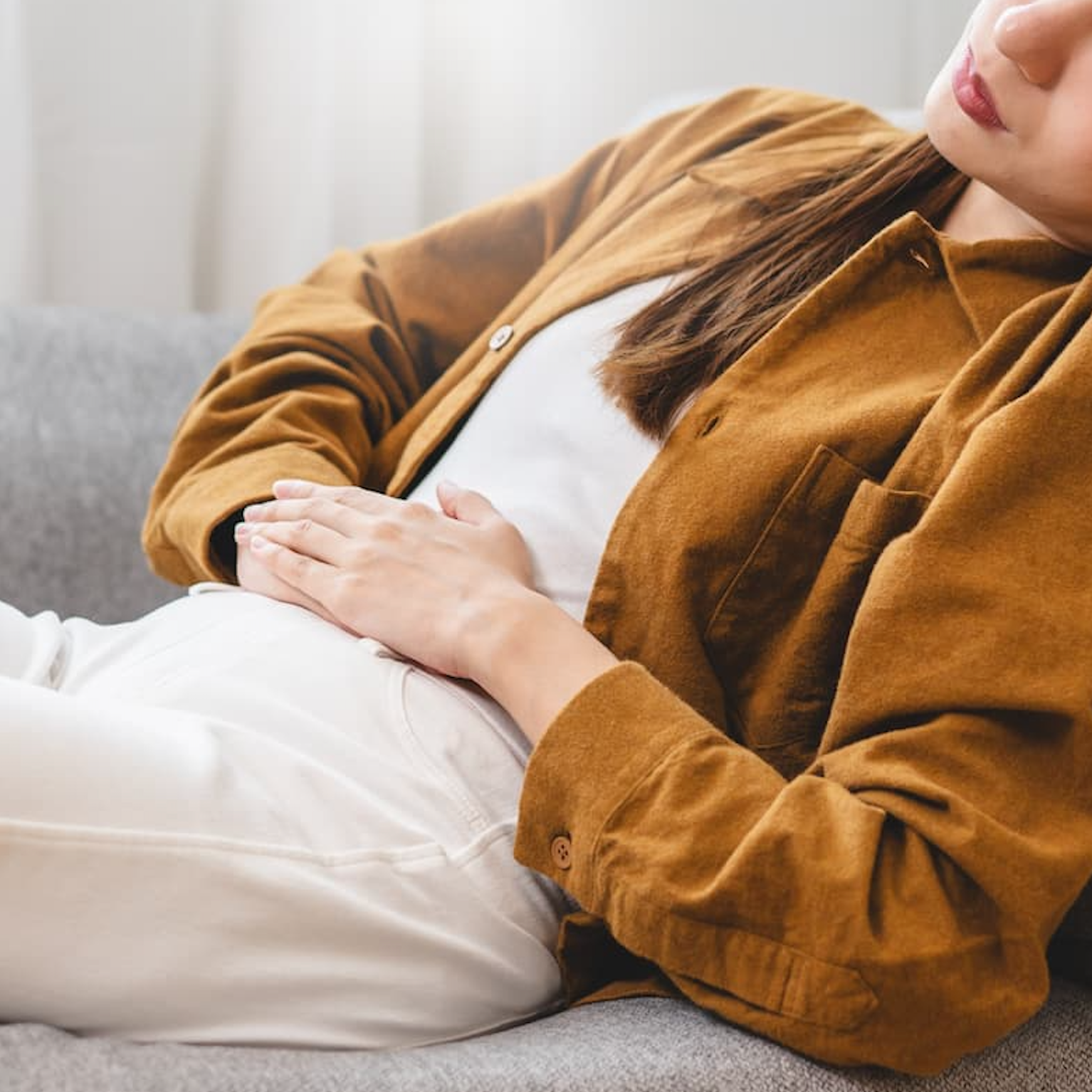Can Diet Help Ease Endometriosis GI Symptoms?
In women with endometriosis and GI distress, 60% responded positively to a low FODMAP diet — more than double the rate on a control diet.
By
Lana Pine
| Published on June 23, 2025
4 min read
Credit: Adobe Stock/Pormezz

A low FODMAP diet significantly reduced gastrointestinal (GI) symptoms in women with endometriosis and improved their quality of life, according to results of a study published in Alimentary Pharmacology and Therapeutics.
Many women living with endometriosis — a condition that affects one in seven women living in Australia, where the study took place — experience frequent and disruptive GI symptoms including bloating, abdominal pain and irregular bowel habits. Yet, according to lead investigator Jane Varney, Ph.D., senior research dietitian in the Department of Gastroenterology at Monash University, treatment for these symptoms is often unclear.
Few treatments are available for GI-specific symptoms, and even those that may help menstrual symptoms may not work for the uncomfortable bloating and pain these patients face. These women often opt for self-management strategies, such as diet, to combat this.
“However, the quality of evidence supporting any given dietary approach in endometriosis is extremely limited, with most dietary studies in women with endometriosis evaluating only dietary supplements, not whole-diet interventions; few have examined the effect on gastrointestinal symptoms and no previous dietary randomized controlled trials (RCTs),” Varney wrote.
What Was Studied?
This study looked at whether a low FODMAP diet — an eating plan that reduces specific types of fermentable carbohydrates — could relieve GI symptoms in women with endometriosis. FODMAPs are found in foods like onions, garlic, wheat, dairy and certain fruits. These can be difficult for the gut to digest and are known to worsen symptoms for people with GI conditions such as irritable bowel syndrome (IBS).
How the Study Worked
Investigators enrolled 35 adult women with endometriosis and ongoing GI symptoms. Participants were randomized to either a low FODMAP diet (less than 5 grams/day) or a control diet plan (approximately 20 grams/day). They followed the plan for 28 days, had a break in between (called a washout period), and then were placed in the alternative diet group.
As the diets were carefully designed to meet Australian dietary guidelines, participants were still eating balanced meals. The team provided the women with most of the food they ate during the intervention periods as well as a detailed meal plan for each.
Information at baseline was collected for seven days prior to the beginning of the menstrual cycle to better control for the effect of a patient’s cycle on GI symptoms. The women were also asked to fill out daily food and symptom diaries.
What Were the Findings?
- More symptom relief: 60% of women reported significant improvement on the low FODMAP diet, compared with 26% on the control diet.
- Lower symptom scores: By the fourth week, women on the low FODMAP diet reported much less GI distress (scores of 35 mm versus 58 mm on a 100-mm scale).
- Improvements in quality of life: The low FODMAP diet also helped improve quality of life related to both digestive issues and endometriosis symptoms.
- Mental health unchanged: Despite the impressive GI symptom relief, the diet didn’t significantly affect stress, anxiety or depression scores.
However, investigators noted this was a controlled clinical trial, so more research is needed to confirm how well this diet works in real-world settings.
“Given the preponderance of inadequately controlled gastrointestinal symptoms among women with endometriosis and the absence of targeted treatments, findings from the current study have the potential to close a treatment gap and positively impact the lives of individuals living with this condition,” investigators concluded.

